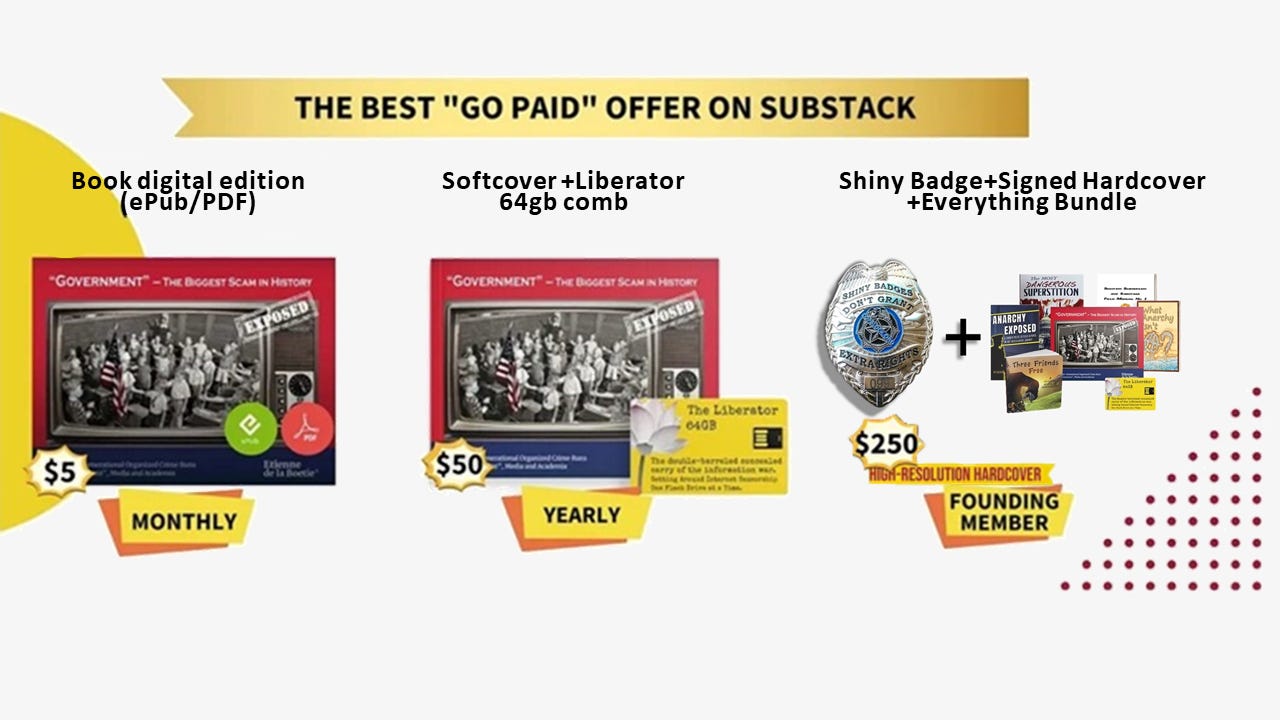No Fooling: The End of “Private Banking” Starts Today with Bank Enrollments in the New FedNow Program
Note: While I am writing and publishing this article on March 31, 2023, most of you will be reading this on April 1, 2023, or later.
The first week of April, 2023 marks the beginning of the enrollment and certification process for financial institutions to start participating in the Federal Reserve’s new FedNow “Instant Payments” services, which is scheduled to launch in July, 2023. (Source.)
What is FedNow?
The FedNow Service is a new instant payment infrastructure developed by the Federal Reserve that allows financial institutions of every size across the U.S. to provide safe and efficient instant payment services.
Through financial institutions participating in the FedNow Service, businesses and individuals can send and receive instant payments in real time, around the clock, every day of the year. Financial institutions and their service providers can use the service to provide innovative instant payment services to customers, and recipients will have full access to funds immediately, allowing for greater financial flexibility when making time-sensitive payments.
The FedNow Service will be deployed in phases, with the initial launch taking place July 2023.
The video below follows a payment over the FedNow Service from start to finish, highlighting what financial institutions need to know about their role in the process.
While many in the alternative media (myself included) have linked the FedNow program to Central Bank Digital Currencies (CBDCs), technically speaking, FedNow is NOT part of the development of CBDCs.
Michelle Bateman, Director of Product Management, Payments at Finastra, is a member of FedNow’s pilot program, and she has stated that the project to develop CBDCs is completely separate from the FedNow Instant Payment service.
And what about central bank digital currency (CBDC)? As has been widely reported, the Fed, like most other central banks in developed nations, is investigating the potential of a digital currency or digital dollar.
Bateman noted that it is still being reviewed, and the two projects are completely separate. (Source.)
The main difference is that once CBDCs are rolled out, consumers will have accounts with a Federal Reserve Bank, while the FedNow program does not. The FedNow program will be offering “Master Accounts” at the Federal Reserve for financial institutions only.
However, as I have previously stated, rolling out CBDCs is a mammoth project, and cannot be done overnight. It would be foolish to believe that the FedNow program is not a stepping stone towards CBDCs.
As you can see from the flow chart at the top of this article, with the implementation of the FedNow Instant Transfer program, all the data involving a financial transaction between two “End-Users” will flow through the Federal Reserve banks.
So while they are advertising the FedNow program as a new system that will make payments and wire transfers much quicker and much more convenient, it is also a mass data collection system for the Fed to begin storing private bank information.
Will this include all the personal details of account holders in private banks?
Yes, apparently it does, based on “Operating Circular 1 (OC 1)“, a document on the Federal Reserve website under “Rules and Regulations Resources.”
In that document, Section 6.0 deals with “FEDERAL RESERVE BANK RESPONSE PROGRAM FOR UNAUTHORIZED ACCESS TO SENSITIVE CONSUMER INFORMATION OBTAINED IN THE COURSE OF PROVIDING FINANCIAL SERVICES.”
Section 6.1, “THE RESERVE BANK’S POSSESSION AND USE OF CONSUMER INFORMATION” states:
The Reserve Banks do not hold accounts for individuals and do not provide Reserve Bank services to individuals. In the course of providing Financial Services to Depository Institutions and other authorized users of Reserve Bank services, the Reserve Banks obtain, store, and transmit information that includes Sensitive Consumer Information.
Under the general supervision of the Board of Governors, the Reserve Banks have implemented information security measures designed to protect the security and confidentiality of nonpublic personal information obtained by them, to protect against any anticipated threats or hazards to the security or integrity of such information, and to protect against unauthorized access to or use or reuse of such information that could result in substantial harm or inconvenience to a Depository Institution’s customer.
Own a piece of libertarian activist history! In 2013, the police accountability organization Cop Block produced a one-time run of "Shiny Badges" modeled after the Keene, New Hampshire police department badge from a manufacturer of "real" police badges. The heavy-weight badge features the Cop Block logo and the words: "Shiny Badges Don't Grant Extra Rights,” reminding the police of the incredible delusion required to believe a shiny badge gives one an exception from morality or the "right" to imprison peaceful people for victimless crimes among other immoral transgressions required for the job.
The Art of Liberty Foundation acquired Five (5) of these at PorcFest 2023, and we are auctioning these off to support the foundation. You can buy here for $250 OR "Go Paid" as a $250 Founding Member on SubStack to receive your shiny badge, an Everything Bundle, AND a One-Year Founding Membership on the Art Of Liberty Foundation's Important News Substack. These are the only Cop Block Shiny Badges available on the internet and when they are gone... They are Gone!
Go Paid (or Upgrade) at the $250 Founding Member level and get the Badge + an Everything Bundle + a One-Year Founding Membership to the Daily News & The Art of Liberty Foundation’s Important News Substacks.








And obviously, there is no opt out.
Tell me, will Larry Fink at BlackRcok be able to scrape up all the data for free...again? for his ALaddin AI system?
I will bet money he will be the first to grab the info.